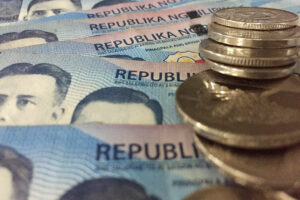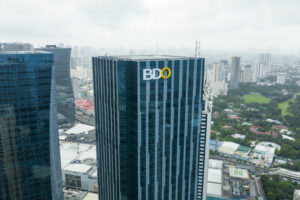Gov’t initiatives seen to boost Islamic finance

THE PHILIPPINE Islamic finance sector is expected to expand further on the back of government and regulatory support and growing demand for related products, Fitch Ratings said.
“Government initiatives to develop the Islamic finance industry in the Philippines are likely to support the sector’s growth in the medium to long term,” the debt watcher said in a commentary.
“Islamic finance initiatives could help the Philippines establish closer economic ties with the Gulf Cooperation Council (GCC) and ASEAN countries, such as Indonesia and Malaysia, and attract foreign direct investment,” it added.
In December 2023, the Philippine government issued its first-ever Islamic bonds, raising $1 billion from the sale of 5.5-year dollar-denominated Sukuk bonds.
Sukuk or Islamic bonds are certificates that represent a proportional undivided ownership right in tangible assets, or a pool of tangible assets. These assets could be in a specific project or investment activity that is Shari’ah-compliant.
“The 2023 sovereign sukuk is the only sukuk issued by an entity in the Philippines to date. However, growth is anticipated in the long-term,” Fitch said.
“Investors from the Middle East took up around 30% of that issuance, which was part of the country’s broader agenda to develop Islamic finance and diversify its investor base.”
The credit rater said last year’s issuance helped the Philippines “diversify funding, tap GCC Islamic investors, deepen its debt capital market, and establish a reference curve for other Philippine issuers to issue sukuk.”
Finance Secretary Ralph G. Recto has said they are looking to issue Sukuk bonds next year amid growing investor appetite from the Middle East.
“The government also aims to boost financial inclusion among Filipino Muslims, who form about 6% of the population but are largely underbanked. Islamic banking is estimated to have below 1% market share in the majority-Catholic country,” Fitch said.
It noted the Philippines’ efforts to create a more enabling environment for Islamic financing, such as issuing regulations, incentives and issuing a tax neutrality law.
The Bangko Sentral ng Pilipinas (BSP) has been encouraging lenders to participate in Islamic banking after the sector was opened to new players.
Last year, the central bank approved the modified minimum capitalization requirement for conventional banks with an Islamic banking unit (IBU). The rules aim to provide flexibility in licensing an IBU of qualified traditional banks and give more Filipinos access to Shari’ah-compliant banking products and services.
These measures helped boost activity in the Islamic banking sector, Fitch said.
Currently, the three entities with Islamic banking operations in the country are the state-owned Al Amanah Islamic Investment Bank, Maybank Philippines, which began operations in August, and CARD Bank, Inc., which opened an Islamic banking branch in Cotabato City this year.
This year, PRU LIFE Insurance Corp. of UK Philippines was also granted the first takaful license in the country, followed by Etiqa Life & General Assurance Philippines, Inc.
Takaful is a type of Islamic insurance where members contribute a certain sum of money to a common pool. Takaful insurance needs to be compliant with Shari’ah law, which prohibits riba (interest), al-maisir (gambling), and al-gharar (uncertainty) principles.
Fitch also noted the potential of the unbanked population, especially in the Bangsamoro Autonomous Region in Muslim Mindanao (BARMM).
“According to a recent study by the Asian Development Bank, 70% of Filipinos (mostly Muslims) surveyed feel compelled to use interest-based products due to limited access to non-interest based financial solutions, and would prefer to use Islamic financial services,” Fitch said.
“The high remittance inflows from overseas Filipino workers, including in the GCC, many who use Islamic banks accounts, underscore the sector’s potential.”
Fitch also noted the public’s lack of awareness and understanding of Islamic banking.
“Moreover, the per capita income in Muslim-majority regions is relatively low, with generally low bankability and potentially more credit risks, making the region likely less attractive for banks. At present, there remains very few Islamic products in the market, with limited funding sources.” — Luisa Maria Jacinta C. Jocson




